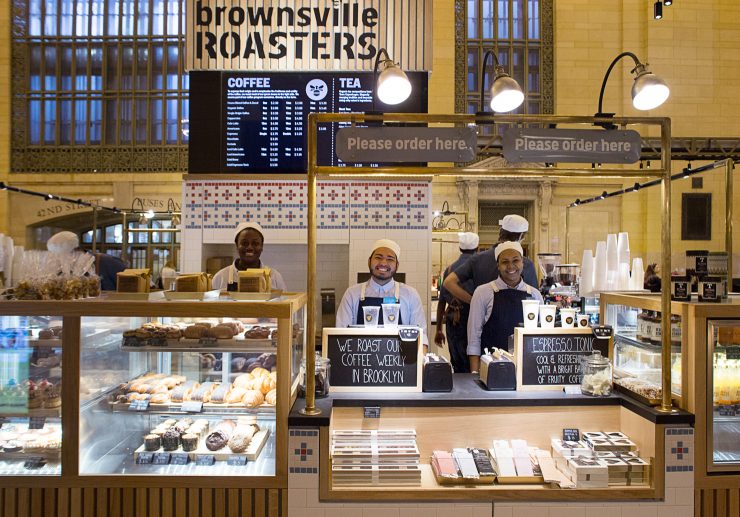
Claus Meyer, the Danish restaurateur and entrepreneur, never sits still. There was Noma in Copenhagen, his world famous restaurant with a killer coffee program, helmed by chef Rene Redzepi. And then there is the intensely genius Gustu in La Paz, Bolivia—a restaurant that put this tiny South American country’s cuisine on the global foodie map.
And this summer Meyer opened the Great Northern Food Hall in the old arrivals hall of Grand Central Terminal in Manhattan. With it came a grain bar serving porridges, granola, and beer; a lovely bakery with an open-faced sandwich station; a vegetable-driven pavilion with salads, juices, and small plates; a full New York deli; a bar to linger for longer; and of course, a glorious coffee shop. (The Nordic hot dog stand is located in another area of the train station.)
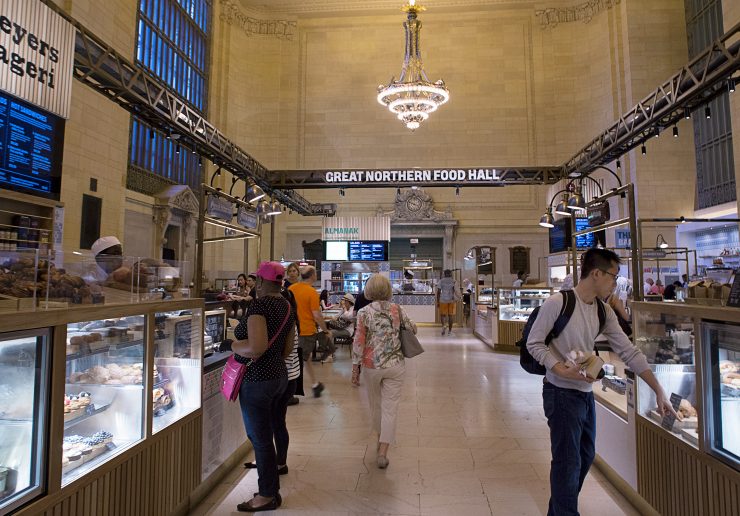
The coffee, sold under the name Brownsville Roasters, is currently roasted in Red Hook at Pulley Collective, though the brand plans to roast in its own Brownsville, Brooklyn facility by the end of 2016. But for now the brand is about as public-facing as it gets, anchoring this major new expansion of Grand Central Terminal’s already voluminous food & coffee offerings. “We’re thrilled to be in the historic Vanderbilt Hall in Grand Central Terminal,” says Omar Maagaard, the Head Barista and Roaster at Brownsville. “This location already sees thousands of New Yorkers and visitors each day.”
But does the city need another coffee shop? Of course it does—and this time it comes with a dash of Nordic coffee culture, starting with Maagard. “We want our coffee venues to be places where people can come in and learn more about coffee in an inclusive way and we can share our interest with them,” shares Maagaard, who got his passion for “black gold” behind the counter of his father’s coffee shop, TriBeca Espresso Bar, in Copenhagen. “We want to be approachable and don’t want consumers to feel obliged to asking any questions—a place where people can have that great coffee experience and come back for more to drink and learn.”
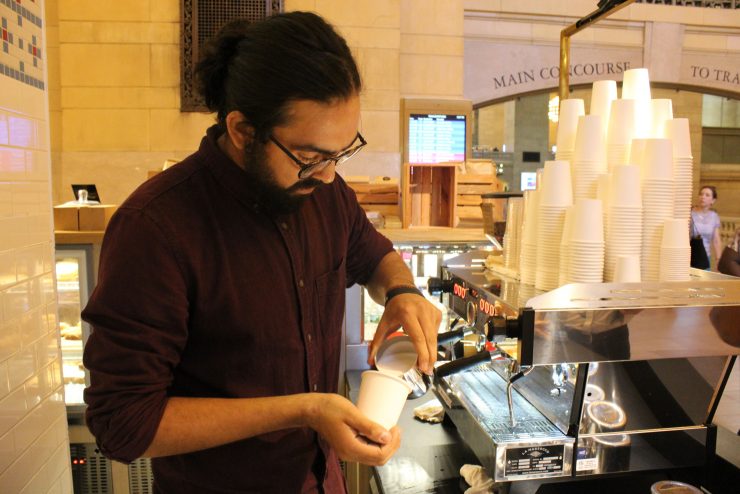
Omar Maagaard
Such is the Claus Meyer way of food and life. In each of his projects, the consumer is included in an open-handed “edification” kind of way. He is an advocate for the full picture, and uses his restaurants and projects to express real food concerns: to tell the full story of food by consuming it. “It’s a culinary immigration story,” Meyer tells Sprudge, “where we take a seed from home, but plant it here—for instance growing old Nordic grains in the fields of New Jersey and Connecticut, fermenting Hudson Valley milk with lactic bacteria from Iceland and Denmark.”
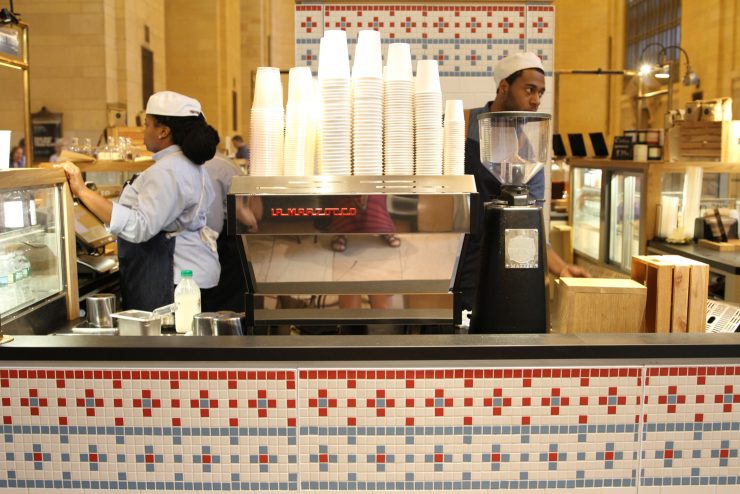
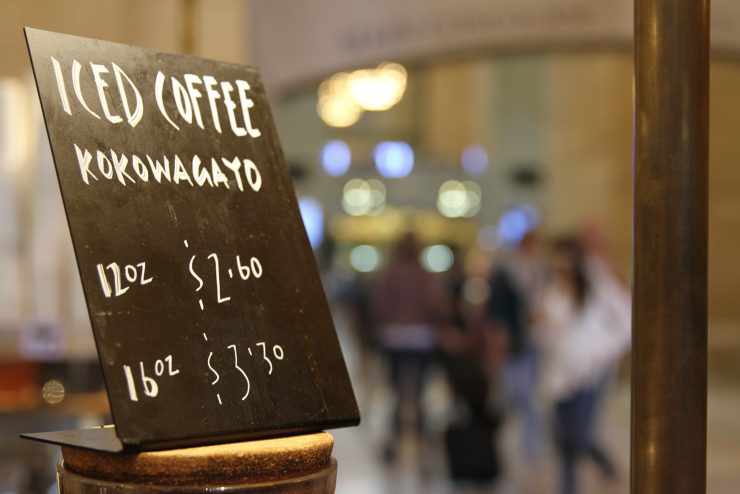
But, of course, with a venue like Grand Central, people with all different levels of coffee knowledge are visiting the space and waiting for their trains—all the more perfect a venue to advocate for taking coffee a little more seriously. “We’re really excited about bringing the same attention to coffee as people give to wine, chocolate, and fine dining—to treat the coffee bean as the seasonal produce it is and to really highlight the diversity of each bean and roast them in a way that brings out their unique characteristics,” says Maagaard. “This has always been a passion of Claus’ and was the foundation of the coffee movement he started with Estate Coffee.”
So, a throwback. Estate Coffee, a coffee operation launched by Claus Meyer and a friend, Soren Sylvest, in 1996 with a mission to shake up the national coffee industry in Denmark, is one of the places where Maagaard earned his chops. “Estate Coffee happened to be located on the other side of the building I grew up in and was a place I always wanted to work at, having had coffees made by awesome people such as Klaus Thomsen, who won the World Barista Championship in 2006,” shares Maagaard.
And Maagard, an educator at heart, wants to instill that same fervency to his band of baristas. “I want to create an environment where the staff wants to and is urged to learn more about coffee, regardless of how much background knowledge they may already have,” says Maagaard. “We also want to train the staff in evolving their palates by having weekly cuppings, so they get an idea of how coffee develops after roasting and so they know how to explain that taste to our guests.”
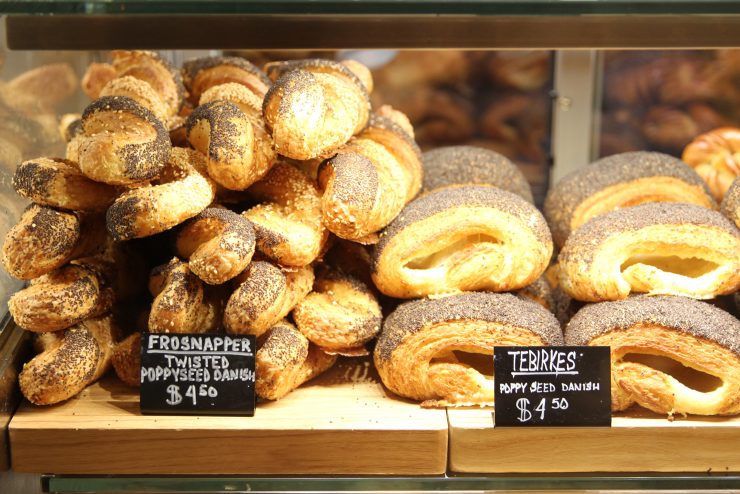
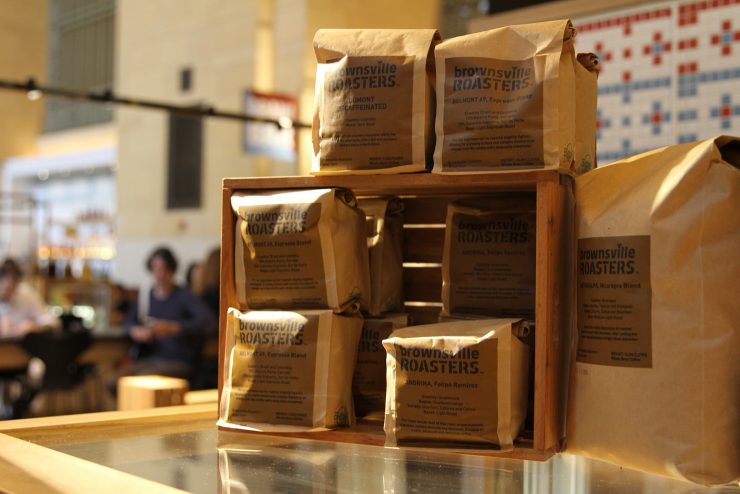
And part of this methodology is explaining to New Yorkers that a lighter roast is very much worth trying out. “What we’ve been referring to as ‘Nordic-style coffee’—it’s more nuanced and definitely less bitter—is something many New Yorkers are not as familiar with,” says Maagard. “We’re also trying to bring that Danish coffee shop feel, the ‘hygge’ vibe, which is very Danish and communicates the idea of coming together for a meal or a great cup of coffee.”
“I just want to expand people’s horizons and open a door to a different and new coffee experience.”
Great Northern Food Hall is located in the Vanderbilt Hall at Grand Central Terminal at 89 East 42nd Street, New York. Visit their official website and follow them on Facebook and Instagram.
Daniel Scheffler is a Sprudge staff writer at large. His work has appeared in T Magazine, Travel And Leisure, Monocle, Playboy, New York Magazine, The New York Times, and Butt. Read more Daniel Scheffler on Sprudge.
The post Claus Meyer’s Brownsville Coffee: Brewing Denmark In Manhattan appeared first on Sprudge.

